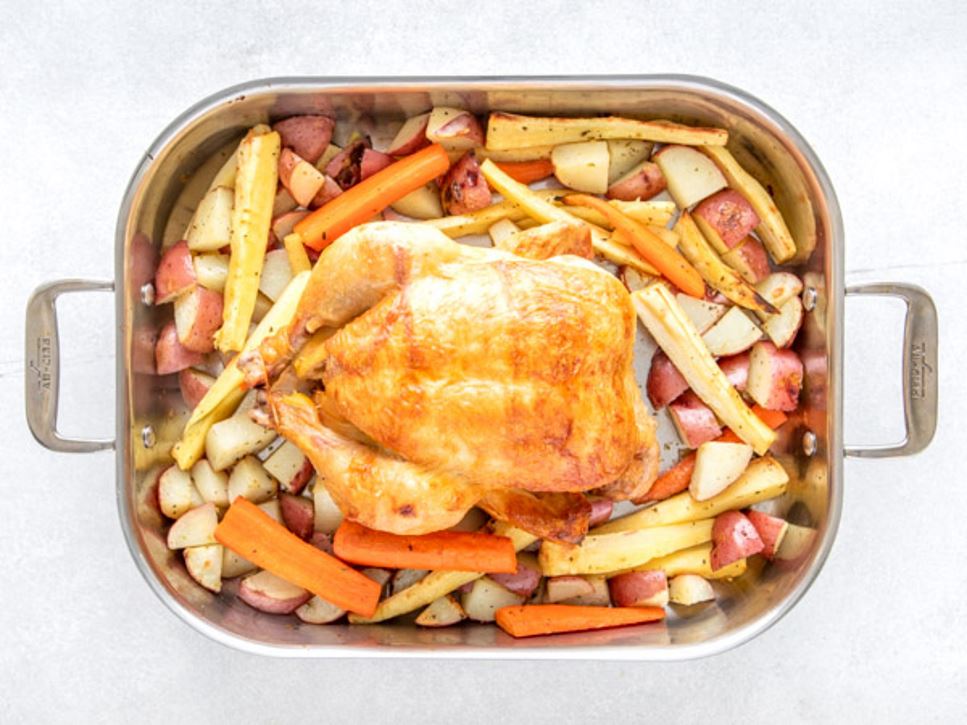March is National Nutrition Month!
March is a month dedicated to celebrating National Nutrition Month, and we are excited to kick things off with a spotlight on the importance of healthy eating and overall wellness. In this article, we focus on latest tips, trends, and resources to help you make informed choices about your nutrition.
Good nutrition is essential in keeping current and future generations healthy. Proper nutrition provides the body with the necessary nutrients, such as vitamins, minerals, carbohydrates, proteins, and fats to function properly. A balanced diet can help prevent numerous health conditions. The availability of healthy, affordable foods contributes to a person’s diet and risk of related chronic diseases such as heart disease, diabetes, and certain types of cancer. Consuming a variety of fruits, vegetables, whole grains, and lean proteins can contribute to overall health and well-being.
According to the Academy of Nutrition and Dietetics, the following are 20 health tips to follow throughout the entire year!
- Eat Breakfast
- Make Half Your Plate Fruits and Vegetables
- Watch Portion Sizes
- Be Active
- Get to Know Food Labels
- Fix Healthy Snacks
- Consult a Registered Dietitian Nutritionist
- Follow Food Safety Guidelines
- Drink More Water
- Prepare Foods at Home
- Order Out without Ditching Goals
- Enact Family Mealtime
- Banish Brown Bag Boredom
- Reduce Added Sugars
- Eat Seafood Twice a Week
- Explore New Foods and Flavors
- Experiment with Plant-Based Meals
- Make an Effort to Reduce Food Waste
- Slow Down at Mealtime
- Supplement with Caution
2024 National Nutrition Month focuses on going Beyond the Table. Let’s explore the following statements from the Academy of Nutrition and Dietetics to determine Fact vs. Fiction!
- Half of our plate or bowl should be filled with vegetables and fruit. – Fact
- Our bodies cannot digest dietary fiber. – Fact
- Only older adults need to be concerned about bone health. – Fiction
- Although we tend to think about the health of our bones when we get older, consuming enough nutrients like calcium and vitamin D at a young age is important for building strong bones early in life.
- At least 60 minutes of physical activity is recommended daily for kids 6 to 17 years old. – Fact
- Saturated fats are healthier than unsaturated fats. – Fiction
- It’s actually the opposite – unsaturated fats are healthier than saturated fats. Ways to reduce saturated fat include replacing solids fats, like butter, with oils; selecting lean meats; fish and plant-based proteins like beans and tofu; and choosing low-fat or fat-free dairy.
- One cup of cooked or raw vegetables (except for leafy greens) count as a 1 cup serving. – Fact
- There are 5 food groups. – Fact
- All breads made with whole wheat flour are whole grains. – Fiction
- For foods to be considered a whole grain, “whole wheat” or some other type of “whole grain” must be listed as the first ingredient (or second ingredient after water).
- Food that provides water can count towards our fluid intake. – Fact
- Registered dietitian nutritionists are experts in food and nutrition. – Fact
Want to have a little creative fun with National Nutrition Month? Here is a fun little coloring sheet!
Nutrition Month Coloring Sheet
Let’s get cooking! Here is a fun entree recipe to try:

Greek Roasted Chicken and Vegetables Recipe
Ingredients
Vegetable oil cooking spray
1 whole chicken
6 red potatoes, scrubbed (peel on)
2 carrots, peeled and sliced in half lengthwise
2 parsnips, peeled and sliced in half lengthwise
1 tablespoon extra-virgin olive oil
2 tablespoons Greek seasoning
Directions
Before you begin: Wash your hands.
- Preheat oven to 400ºF. Coat the roasting pan with the cooking spray. Place the chicken in the pan.
- Toss the potatoes, carrots and parsnips with the olive oil, and then place them in the roasting pan around the chicken. Sprinkle the chicken and vegetables with Greek seasoning.
- Bake for 10 minutes and then lower the heat to 350ºF.
- Continue to bake until the chicken temperature is 165ºF (test with cooking thermometer near chicken thigh), approximately 45 minutes to 1 hour.
- Baste the chicken and vegetables at least twice with the cooking juices. Remove and discard the chicken skin. Serve hot.
To intensify the flavor, sprinkle 1 tablespoon of Greek seasoning inside the chicken.
Nutritional Information
Serving size: 4 ounces cooked chicken, 1¼ cups vegetables
Serves 6
Calories: 300; Total Fat: 6g; Saturated Fat: 1g; Cholesterol: 80mg; Sodium: 115mg; Total Carbohydrate: 31g; Dietary Fiber: 4g; Protein: 29g.
For additional resources about National Nutrition Month, please visit the following websites or contact us at 740-942-2616!
Academy of Nutrition and Dietetics: eatright.org

